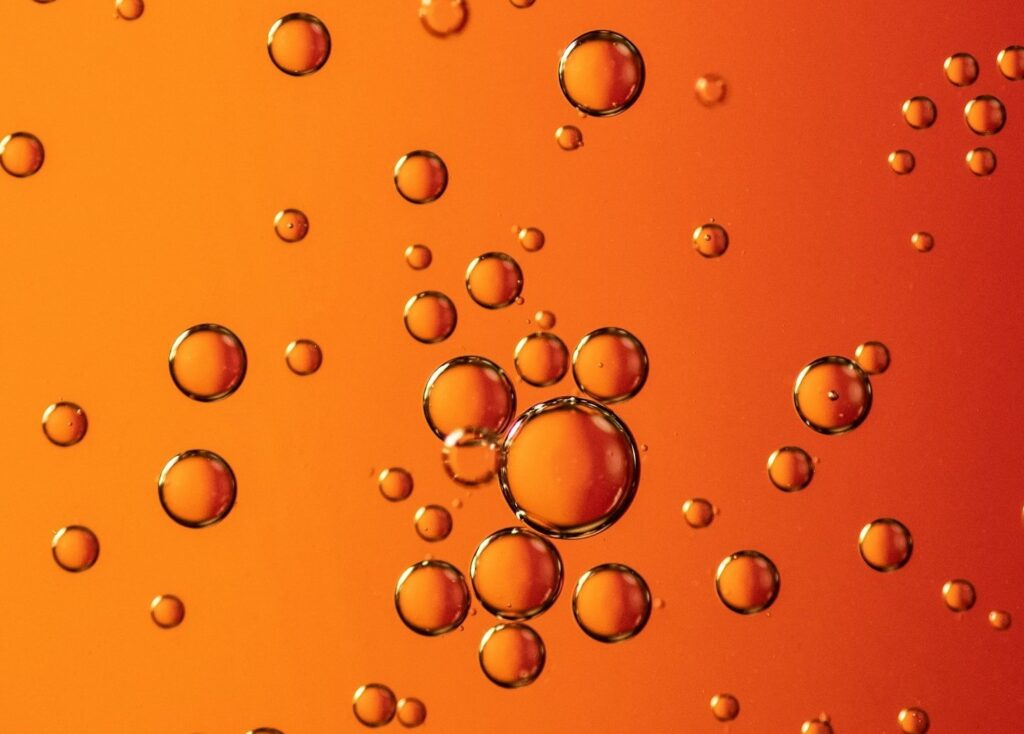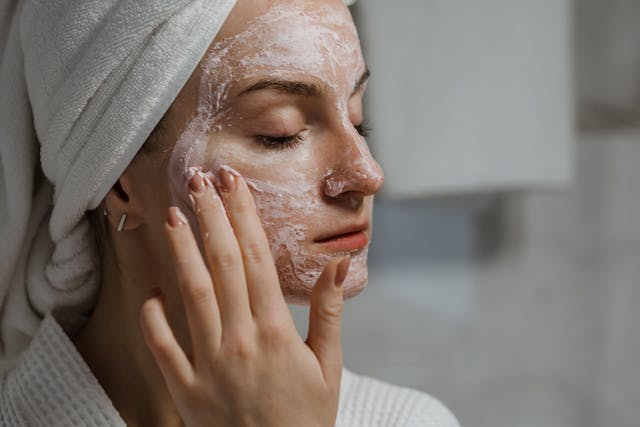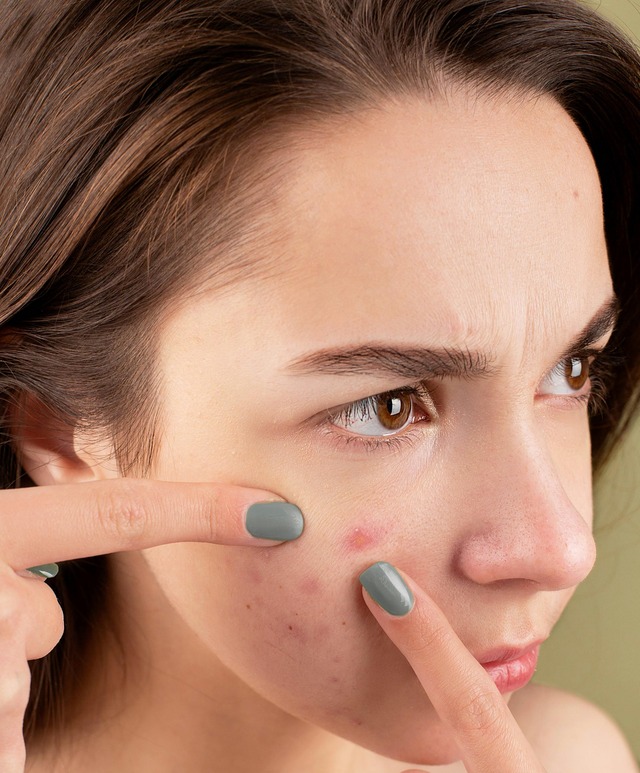- Introduction
- What is Hyaluronic Acid?
- How does hyaluronic acid work?
- Choosing the Best Hyaluronic Acid for Your Skin Type
- Hyaluronic Acid Application: Tips for Maximum Effectiveness
- Incorporating Hyaluronic Acid into Your Skincare Routine
- Hyaluronic Acid Combinations: What Works Best in Skincare
- Benefits of Hyaluronic Acid
- Is Hyaluronic Acid Safe? What You Need to Know
- Wrapping up
Introduction
Surely you have heard of hyaluronic acid, anyone even remotely interested in skincare has come across this super ingredient found in face masks, serums, creams, and almost every type of skin care product. To restore a youthful and healthy skin appearance, use products with multifunctional and high-performance active ingredients, such as hyaluronic acid. Hyaluronic acid is often described as a moisture magnet.
Hyaluronic acid is an ingredient we adore in our skincare routines, thanks to its many moisturizing properties. It has some amazing working capabilities for rejuvenating the skin. We tried to provide valuable information about this executant. If you are interested, stay with us and continue reading and learn how to reduce signs of aging, such as expression lines, wrinkles, and sagging skin.
What is Hyaluronic Acid?
Despite the name hyaluronic acid, it is not an acid, but a sugar molecule produced naturally by the body. Higher concentrations are contained in the skin, connective tissues, and eyes. In our body, hyaluronic acid binds with water to create a jelly-like substance. This remarkable molecule is capable of holding up to 1,000 times its weight in water, making it an excellent moisturizer for the skin.
This substance acts as a moisturizing lubricant and creates a cushioning effect between the skin’s fibers, collagen, and elastin, as well as in our tendons, muscles, and lungs. Hyaluronic acid can absorb moisture from the environment into the skin and then help provide long-lasting hydration. Unfortunately, the production of hyaluronic acid decreases with age, even though the body itself produces hyaluronic acid.
When the skin lacks hyaluronic acid, the skin loses its elasticity and dries out, increasing the appearance of wrinkles, dry and flabby skin texture, and a lack of glow. To replace the body’s production, there are now many skin care products and dietary supplements that contain the fantastic hyaluronic acid. Hyaluronic acid is also found in certain foods, for example in animal products such as liver or meat and citrus fruits, potatoes, and bananas.
How does hyaluronic acid work?
Hyaluronic acid works by binding the moisture in the skin. This allows the skin to regain its elasticity, moisture, plumpness, and, most importantly, its glow. You could say that hyaluronic acid keeps the joints “lubricated” and the eyes moisturized. Older people may recognize that they suffer from dry eyes and stiff joints.
Hyaluronic acid also helps to increase collagen production in the skin, the lack of which is also a cause of wrinkles. By incorporating hyaluronic acid into your daily skincare routine, you can easily prevent wrinkles and fine lines while quickly achieving the enviable glow you’ve always dreamed of.
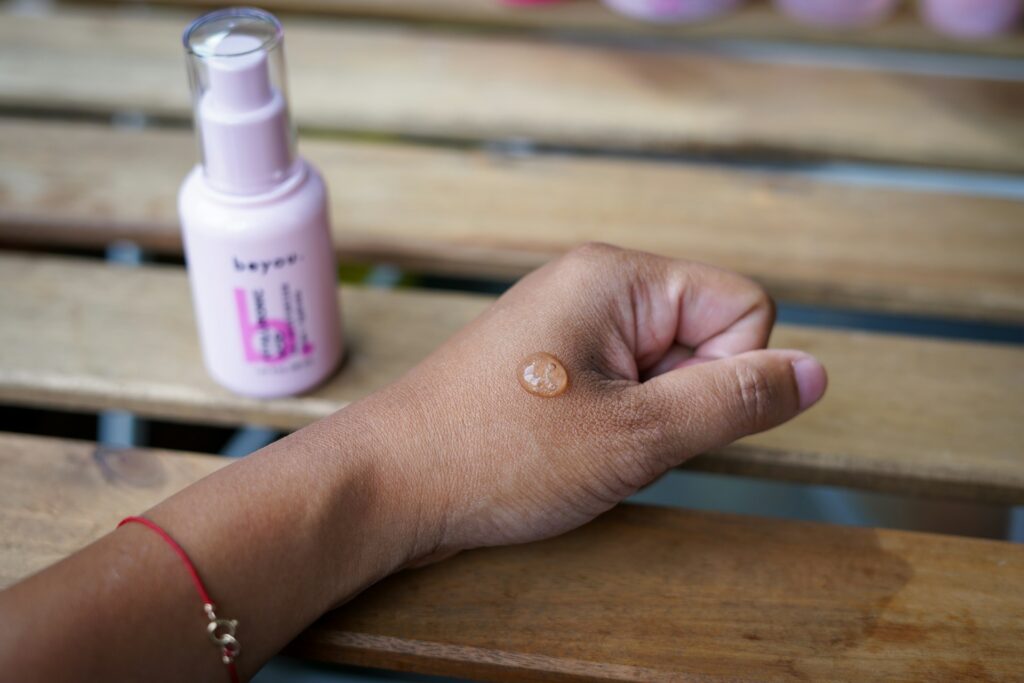
Choosing the Best Hyaluronic Acid for Your Skin Type
Hyaluronic acid is an ingredient that comes in many different forms, or rather sizes. The smaller the size of the hyaluronic acid molecules, the deeper they penetrate the skin. Many products contain several different sizes of hyaluronic acid to give a wider effect. Hyaluronic acid with smaller molecules gives an immediate result and makes the skin feel hydrated, soft, and supple, while hyaluronic acid with larger molecules takes longer to penetrate the skin.
However, the time aspect gives an advantage in the form of the skin being moisturized continuously throughout the day, so the effect lasts longer. Hyaluronic acid is such a powerful ingredient that, in the vast majority of cases, you don’t need more than one product in your daily skincare routine that contains hyaluronic acid. It also goes very well with other ingredients such as retinol, vitamins, and other acids.
Hyaluronic Acid Application: Tips for Maximum Effectiveness
To get more benefit from the treatment, it is worth following the important rules for using hyaluronic acid for the skin.
- Facial cleansing: Avoid applying hyaluronic acid products to poorly cleansed skin. Makeup residue, dust particles, or excess natural sebum can interfere with the work of cosmetics.
- Skin preparation: Experts advise not to forget about toning after each wash. Special toners provide optimal hydration and freshness and prepare the face for further care.
- Temperature conditions: Only in the right conditions can you preserve the beneficial properties of skin care cosmetics. Avoid storing creams and other products at high temperatures and humidity indoors,
- Sun Exposure: Protect skincare products from direct sunlight. If you need to enhance the refreshing effect of toner or cream, place it on the shelf in the refrigerator door a few minutes before applying.
One of the most popular ingredients in moisturizing skin cosmetics is hyaluronic acid. Its molecules attract moisture and protect against its rapid evaporation. Products with hyaluronic acid can be used at home to prevent dryness and flaking and to maintain the elasticity and youth of the skin.
Incorporating Hyaluronic Acid into Your Skincare Routine
Hyaluronic acid is used in more and more skincare and make-up products. This is due to hyaluronic acid’s ability to bind moisture in the skin – and the fact that the active ingredients can be used on all skin types. If you want to support healthy and supple skin, you can use hyaluronic acid serums, hyaluronic acid creams, or dietary supplements with hyaluronic acid that work from within.
Hyaluronic Acid Serums: The Ultimate Hydration Boost
Hyaluronic acid is not moisturizing in itself, but rather moisture-binding. Therefore, hyaluronic acid fits better in a serum than in a cream. A serum is applied before other skin care products and can thus improve the skin’s conditions to receive the subsequent care. Hyaluronic acid serums are especially good if your skin is usually very dry, and mature and maybe even has some redness and irritations.
What distinguishes a serum with hyaluronic acid is the content and amount of moisture. It is higher than e.g. a hyaluronic acid cream contains. This is precisely why hyaluronic acid serum is good for the above-mentioned skin types.
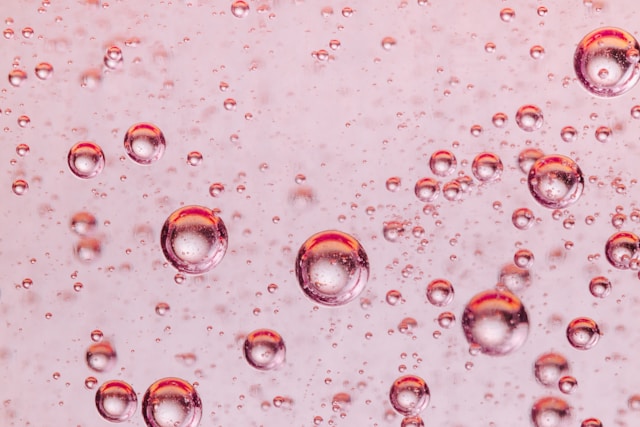
Hyaluronic Acid Creams: Daily Moisture for All Skin Types
If you are looking for a cheaper alternative to an expensive hyaluronic acid serum, you can use a hyaluronic acid cream. Hyaluronic acid cream is a big market, whether you are looking for a day cream or a night cream. There can be various benefits to using day and night creams with hyaluronic acid in them. A night cream and day cream are good products to incorporate into your daily skincare routine.
Deep Hydration for Dehydrated Skin
Face masks with hyaluronic acid offer many benefits for the skin, especially for those with dehydrated skin. Hyaluronic acid is a naturally occurring substance in the body that helps retain moisture in the skin and keeps it plump and hydrated. When hyaluronic acid is applied topically in a face mask, hyaluronic acid penetrates the skin and makes it soft, supple, and beautiful.
Face masks are not meant to be used daily, but are an excellent addition to any skincare routine during the week. However, it is important to choose a high-quality product and follow the instructions for use to get maximum effect.
Makeup with Hyaluronic Acid: Keeping Your Skin Hydrated
If you suffer from very dry and dull skin, you may benefit from using makeup with hyaluronic acid. By choosing a make-up product with the addition of hyaluronic acid, you give your skin the best conditions to stay healthy, well cared for, and hydrated.
Hyaluronic Acid Combinations: What Works Best in Skincare
Hyaluronic acid can be used in combination with other products in your skincare routine, such as vitamin C, retinol, and peels. However, hyaluronic acid and glycolic acid should not be combined because this combination reduces the effect of hyaluronic acid.
The Perfect Pair: Hyaluronic Acid and Vitamin C
When you use hyaluronic acid with vitamin C in your skincare routine, you get double benefits – they complement each other to hydrate, protect, and repair aging skin. HA helps keep the skin moist, while vitamin C protects against sun damage and helps fade skin discoloration. If you’re looking for a pair of skincare ingredients for optimal skin health, consider hyaluronic acid and vitamin C. Combining these makes for a great all-in-one skincare step.
Hyaluronic Acid and Retinol: A Match Made in Heaven
Hyaluronic acid and retinol are a “match made in heaven”. Together they balance each other without compromising the things that make them unique. They work very well together, making it easier to reap the benefits of retinol without suffering the usual dryness, thanks to the moisture boost from HA.
That’s exactly what makes this combination one of the most popular across all skincare ingredients. Hyaluronic acid helps keep retinol at bay and when used together they leave skin clearer, smoother, and more hydrated.

Hyaluronic Acid and Niacinamide: The Best of Both Worlds
Hyaluronic acid and niacinamide are a great pair. When used together, always apply HA first, followed by niacinamide. In this way, you will be able to prepare the skin with a base of moisture first, and then apply the ingredient that regulates sebum production and minimizes pores – Niacinamide. Finally, you can seal in the active ingredients by using a moisturizer. If you suffer from dry skin with an oily T-zone, you can use niacinamide only on your nose, chin, and forehead.
Benefits of Hyaluronic Acid
Provide Deep Hydration
In skin care formulations, Hyaluronic acid acts as a humectant, drawing moisture from the environment into the skin, thereby preventing dryness and dehydration. Regular use of products containing hyaluronic acid can change the skin’s hydration level.
It strengthens the skin’s natural defenses, reducing moisture loss and protecting against environmental stressors, ideal for dry skin and harsh climates. The result is a noticeable improvement in skin texture and elasticity, making hyaluronic acid indispensable in moisturizing treatments.
Anti-aging and wrinkle reduction
As we age, our skin loses its ability to retain moisture, leading to fine lines and wrinkles. Hyaluronic acid hydrates reduces wrinkles, and improves skin elasticity to help prevent and reduce signs of aging. It works harmoniously with collagen and elastin to improve skin firmness and elasticity, giving your skin a youthful appearance. It is suitable for all skin types, making it a versatile anti-aging ingredient.
Soothing Sensitive Skin
The soothing properties of hyaluronic acid make it ideal for sensitive skin. It soothes and hydrates without weighing down the skin, which is important for maintaining healthy skin in sensitive conditions. It effectively soothes redness and irritation while strengthening the skin’s natural barrier. This protection shields the skin from irritants and environmental factors that can cause sensitivity.
In addition to its soothing properties, hyaluronic acid helps restore balance and elasticity to the skin. Its gentle action promotes healing and reduces inflammation, making it an essential ingredient in products designed for sensitive skin.
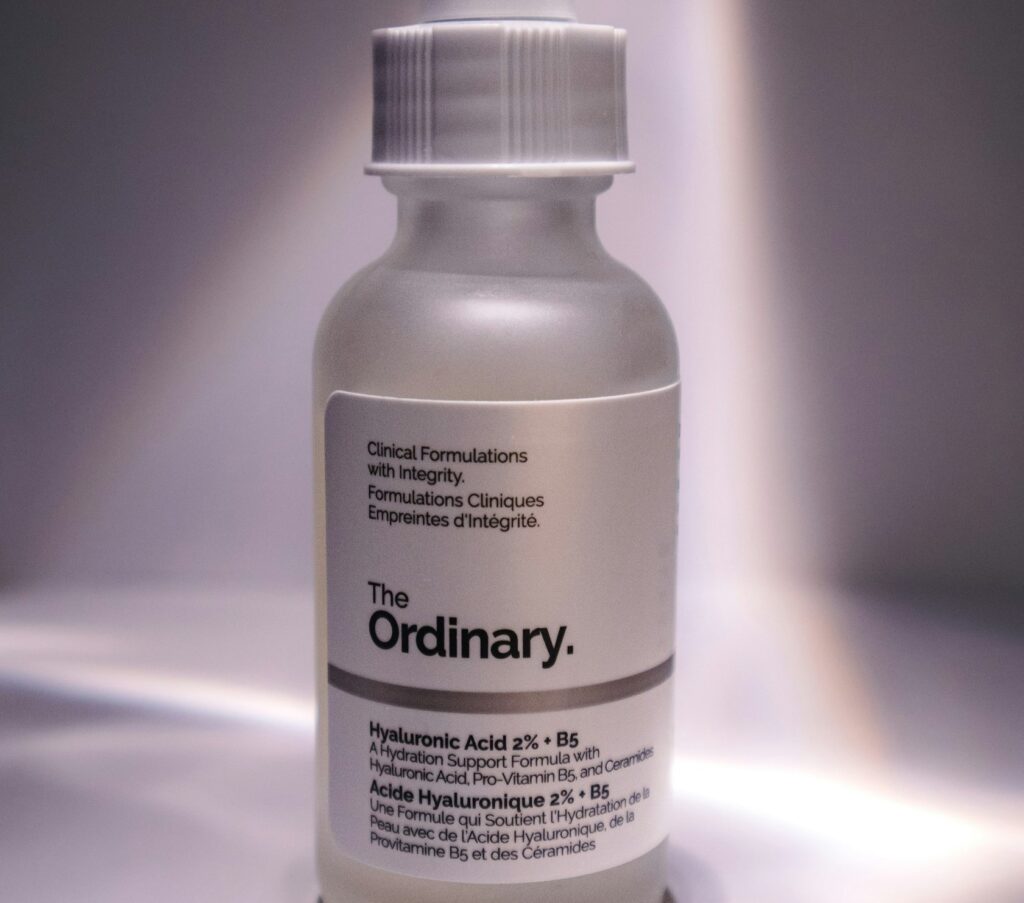
Healing Scars and Fine Lines
Hyaluronic acid plays a vital role in the skin healing process, especially in the treatment of scars and fine lines. Its natural presence in the extracellular matrix of the skin promotes tissue repair and regeneration. When applied, it speeds up the healing process by controlling inflammation and signaling the body to build more blood vessels in the damaged area. This not only speeds up healing but also reduces scarring.
For fine lines, the moisture-binding properties of hyaluronic acid are invaluable. By hydrating the skin, it helps reduce the appearance of fine lines and improve skin texture. Over time, this results in a smoother, clearer skin surface, reducing the appearance of fine scars and fine lines.
Improving Skin Texture and Tone
Hyaluronic acid significantly improves the texture and tone of the skin. Its hydration smoothes and softens the skin, promoting skin cell renewal for a more even complexion. Regular use helps remove dead skin cells and promotes new, healthier layers of skin.
Hyaluronic acid’s ability to balance the skin’s moisture levels also impacts skin tone. It helps reduce hyperpigmentation and uneven skin tone, resulting in a more even, radiant complexion. This effect is especially beneficial for those struggling with dull, uneven skin, as it provides a natural, radiant glow.
Speeding Up Skin Restoration and Regeneration
Hyaluronic acid plays a vital role in skin regeneration by promoting cell renewal. It is especially useful for problems such as acne scars and sun damage. For example, in the case of minor burns or scrapes, using hyaluronic acid can speed up the healing process and reduce the likelihood of scarring.
Additionally, hyaluronic acid promotes the production of collagen, a protein essential for skin elasticity and firmness. This function helps repair existing damage and strengthens the skin against future damage. The result is firmer, brighter skin with an improved ability to repair itself and maintain performance.
Supporting Acne-Prone Skin with Hyaluronic Acid
Hyaluronic acid is extremely beneficial for acne-prone skin due to its non-comedogenic properties. It moisturizes the skin without clogging the pores, which is often a concern for people with acne. By keeping the skin well-hydrated, it helps reduce the production of excess sebum, which is the main cause of acne. This balance is essential to prevent breakouts and maintain clear skin.
Additionally, hyaluronic acid’s anti-inflammatory properties soothe the redness and irritation often associated with acne. Its gentle nature makes it suitable for use even during active breakouts, helping to reduce inflammation and speed healing. Incorporating it into your acne-prone skincare routine can greatly improve the health and appearance of your skin.
Sun Damage and UV Protection
While hyaluronic acid is not a substitute for sunscreen, it does play a supporting role in combating the effects of sun exposure. Its antioxidant properties help neutralize free radicals that are formed by UV exposure and can lead to premature aging and skin damage. By mitigating these harmful effects, it helps maintain the integrity and appearance of the skin.
Regular application of hyaluronic acid reverses UV damage by restoring lost hydration, reducing signs of sun-induced aging, and improving skin texture, which is critical to maintaining healthy skin against UV rays and environmental stressors. For example, incorporating a hyaluronic acid-rich face mask into your after-sun care routine can significantly restore moisture and aid in healing UV-induced skin damage.
Provides a Natural glow
The moisturizing effect of hyaluronic acid directly contributes to a natural, radiant glow. Well-hydrated skin reflects light better, giving it a radiant appearance. This glow is a sign of healthy, balanced skin, improving skin texture and giving it a natural glow.
In addition to hydration, hyaluronic acid also helps to even out skin tone and reduce dullness, further contributing to a radiant complexion. The combination of hydrating, smoothing, and toning properties leaves skin visibly healthier and more vibrant, giving it a naturally radiant appearance.
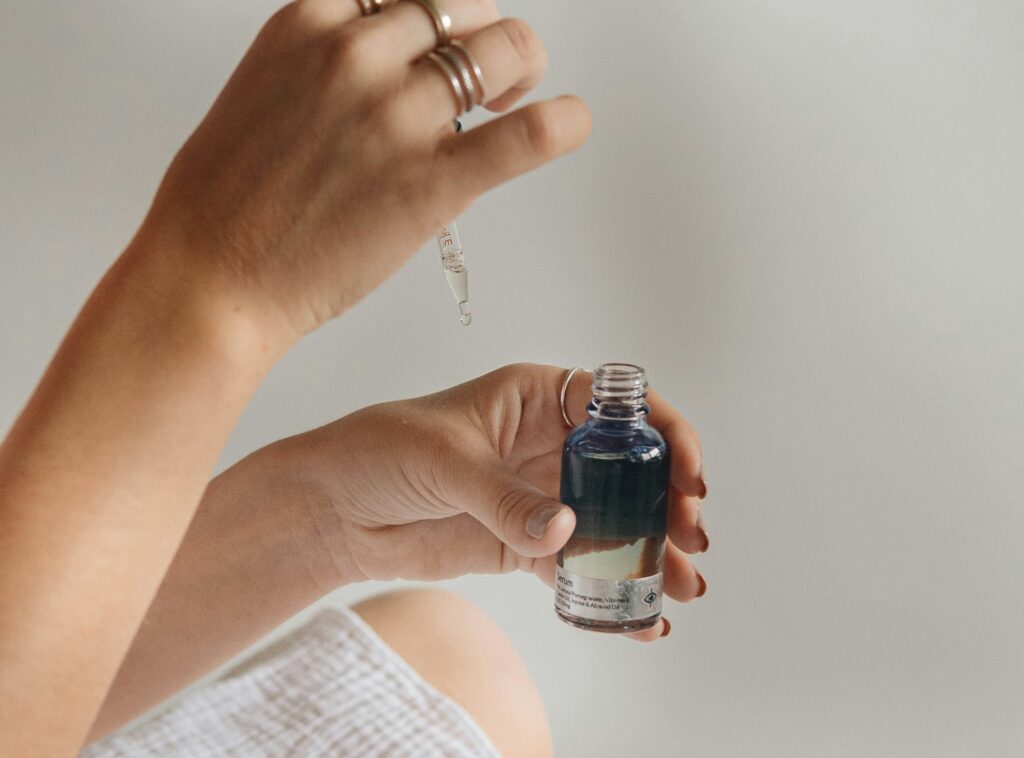
Is Hyaluronic Acid Safe? What You Need to Know
Hyaluronic acid is generally safe for most people. However, it is always a good idea to do a patch test before applying it to your face, especially if you have sensitive skin. If you experience any adverse reactions or irritation, discontinue use immediately As with any new skin care product, it is also recommended to consult with a dermatologist or skin care professional before adding hyaluronic acid to your routine, especially if you have any skin conditions or are currently using other active ingredients.
Wrapping up
Hyaluronic acid is a skincare hero that can transform your skin by providing intense hydration, reducing wrinkles, improving elasticity, and speeding up the skin’s natural repair process. Incorporating this powerful ingredient into your daily skincare routine will help you achieve a healthier, younger-looking complexion. Whether you have dry, oily, or sensitive skin, Hyaluronic acid is a versatile ingredient that can benefit everyone. So why wait? Experience the amazing benefits of hyaluronic acid and give your skin the love and care it deserves.
